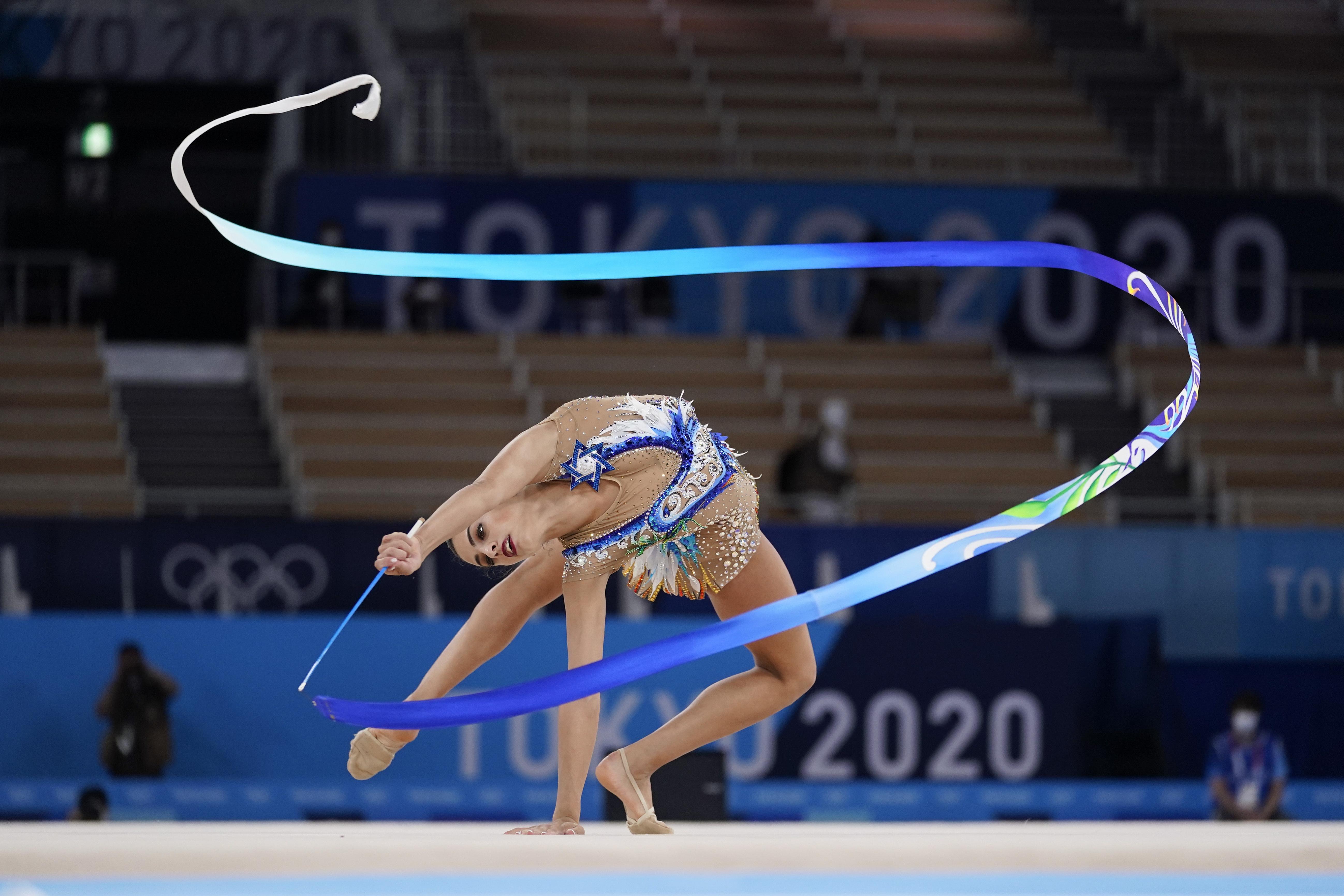
TOKYO (AP) — Her blue ribbon soared halfway to the rafters, and Israel’s Linoy Ashram spun and swirled and caught it, winning gold in a performance that ended Russia’s decades-long dominance in rhythmic gymnastics.
Ashram, 22, became the first Israeli woman to ever win an Olympic gold medal, edging out a pair of Russian identical twin sisters who were the favorites heading into Tokyo.
Dina Averina, 22, placed second and her sister, Arina, fell to fourth place. Alina Harnasko of Belarus won the bronze medal.
“This is history. I’m proud of represent Israel here, on the biggest stage in the world,” Ashram said after her victory. “It’s like a dream, I think it’s like I’m not here.”
Ashram, 22, has served as an Israeli military secretary since 2017, and she works there every day when she’s not performing. Israeli women are required to perform at least two years of military service, and she said it is important to her to give time and energy to her country.
In her final performance in the four-round competition, she danced to a techno remix of the Jewish celebratory folk song “Hava Nagila” as the crowd clapped along. Ashram, wearing a blue and white feathered bird leotard in the colors of the Israeli flag, missed a catch, and spectators gasped.
Dina Averina, who was set to perform just after Ashram, saw her mistake and was hopeful it was a chance for her to take the gold medal back to Russia.
Russia has swept the sports’ gold medals in every Olympics since 2000. Averina, a three-time world champion, said after the competition that she wasn’t expecting gold, but she’d been working hard to win it.
In the rhythmic gymnastics individual all-around competition, gymnasts perform with each of the sport’s four apparatuses — a hoop, a ball, a pair of clubs and a ribbon — tossing and catching them while dancing and spinning in leotards heavy with thousands of crystals.
Rhythmic gymnasts are judged on two criteria, the difficulty of their routines and how well they execute them.
The sport rewrote its code of points after the 2016 Games and removed the cap on the difficulty score. Now there is no ceiling for how many points a gymnast can get for the difficulty of their performance, compelling them to cram their routines with risky, high-scoring moves: long throws, spinning, leaping, passing balls and clubs behind their backs.
But to make room in their allotted 90 seconds, they had to cut something, and some of the performers said what they lost was room for the artistry and storytelling that has long been central in rhythmic gymnastics.
“With this new regulation it looks more like you’re juggling in a circus instead of expressing yourself in an artistic way,” said Italian gymnast Milena Baldassarri, who finished sixth. “It’s much more difficult and it’s fun to see, but with the old system you can transmit more of your feeling and inspire the audience much more than now.”
But both Ashram and Dina Averina said they believed the new scoring system helped them. Both performed intricate, complicated routines at head-spinning speed, running up wildly high difficulty scores.
All contents © copyright 2021 Associated Press. All rights reserved
The remainder of this article is available in its entirety at CBN

